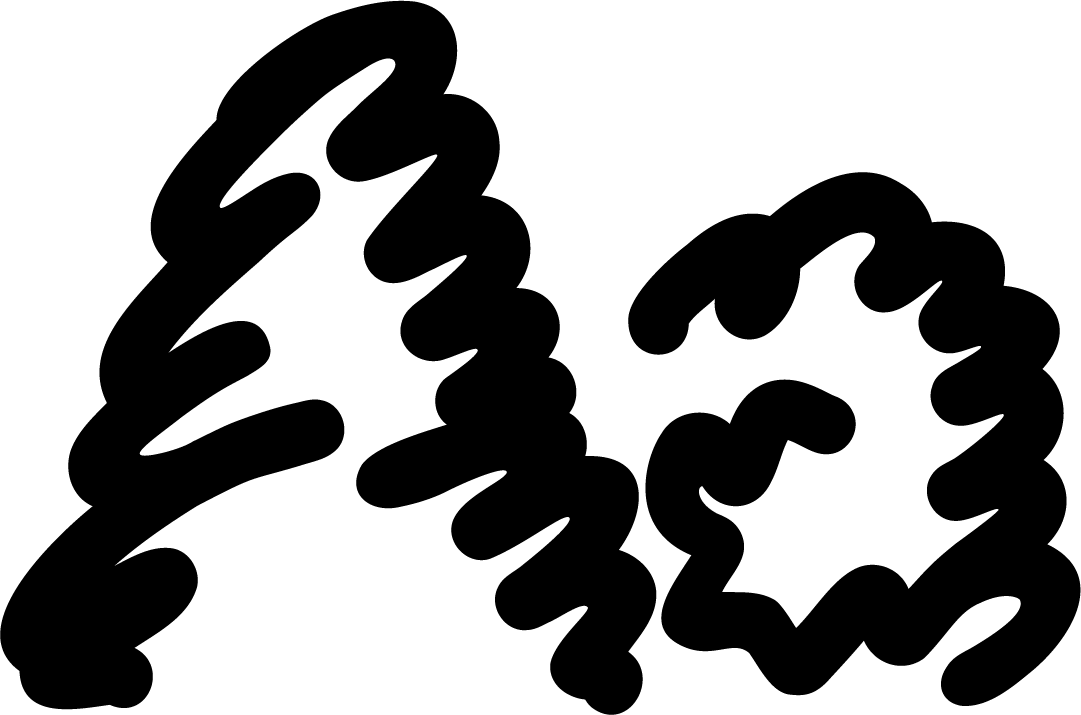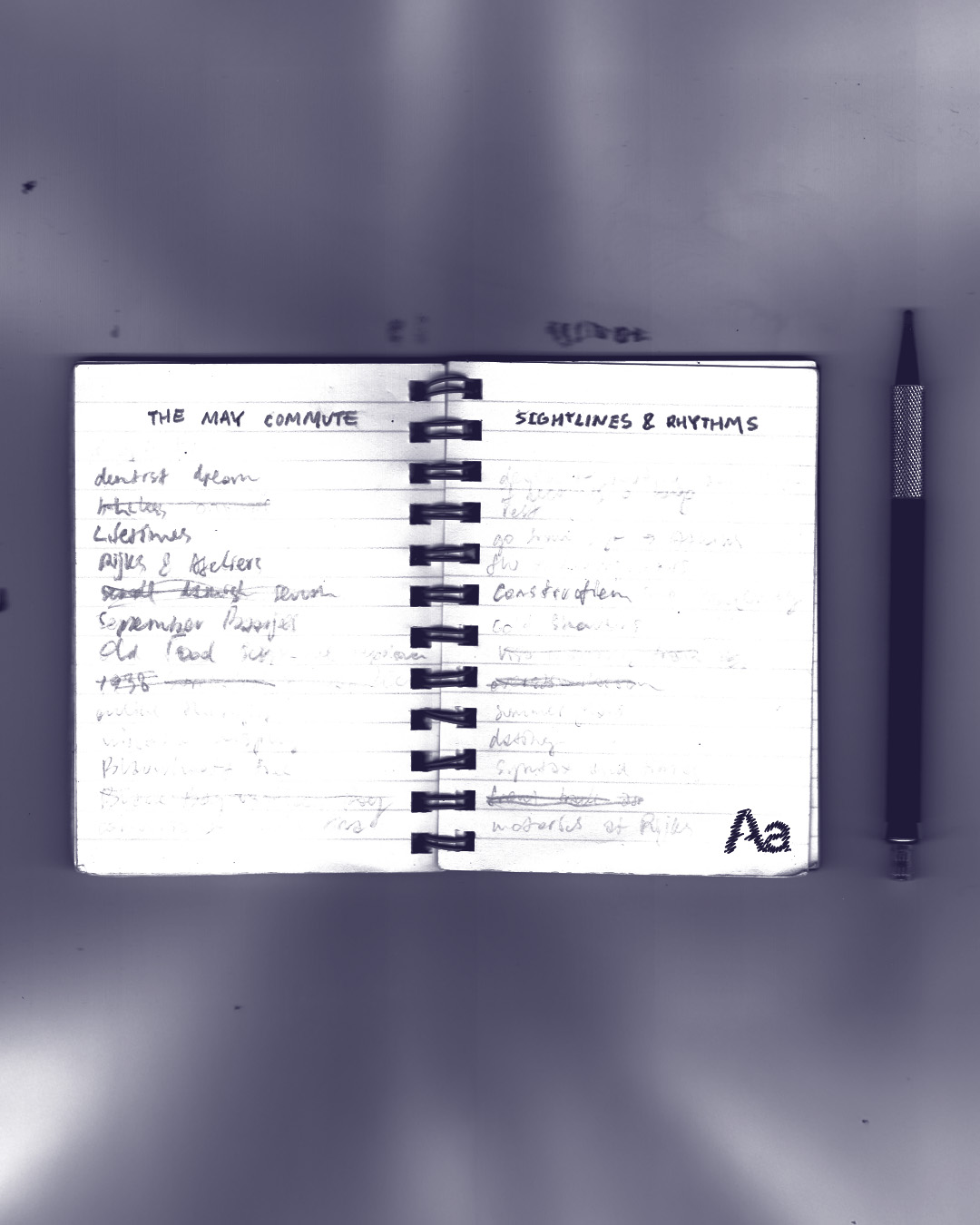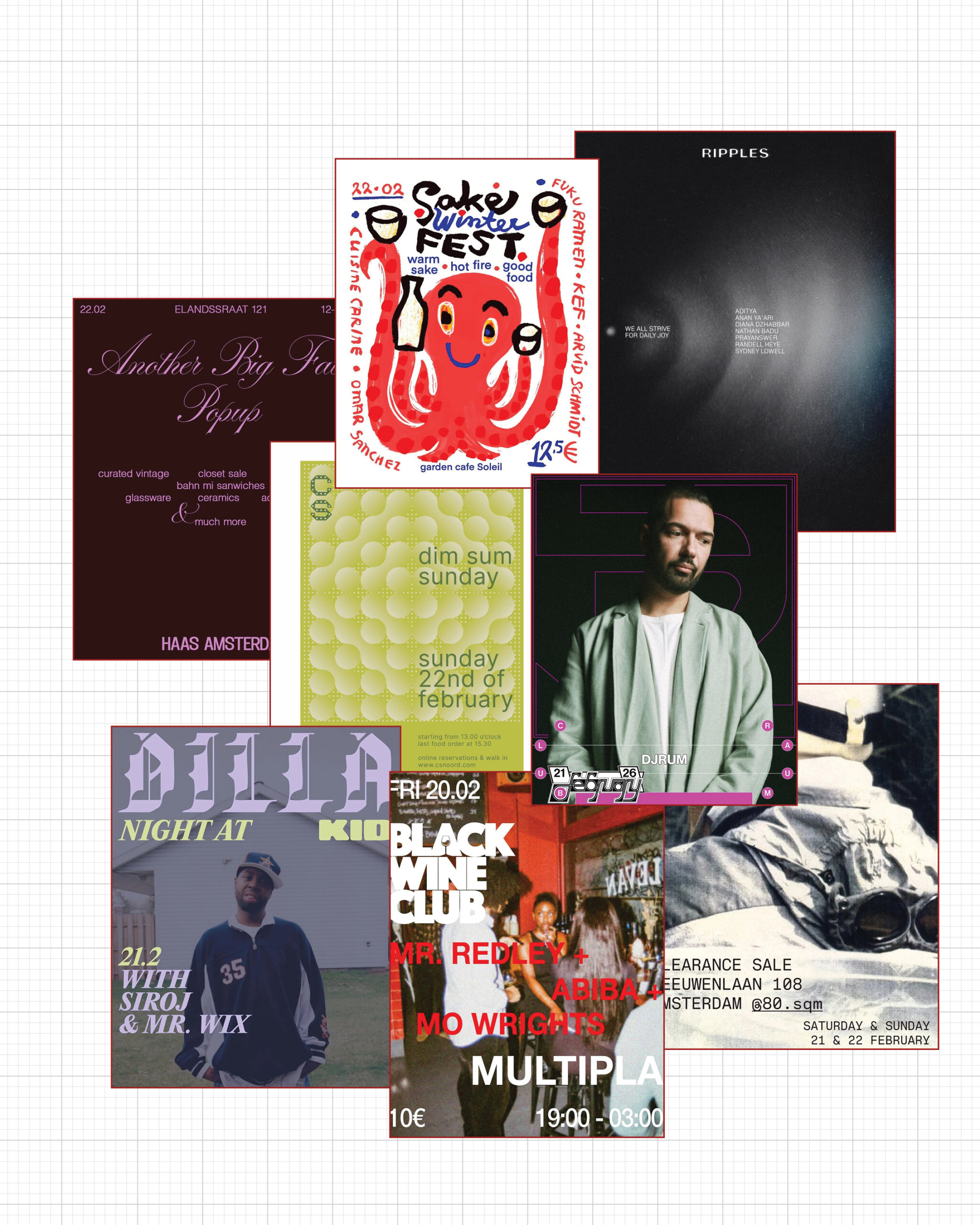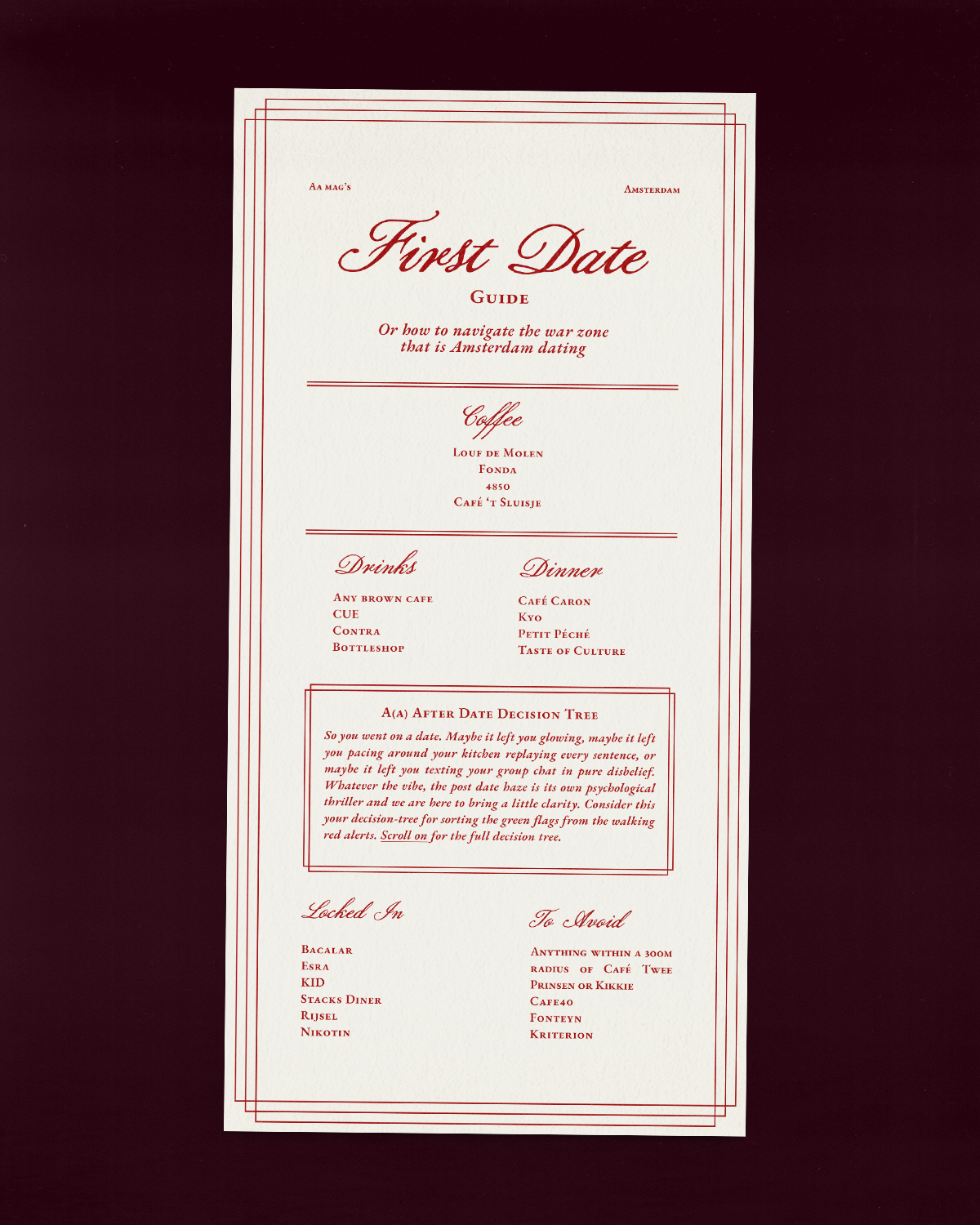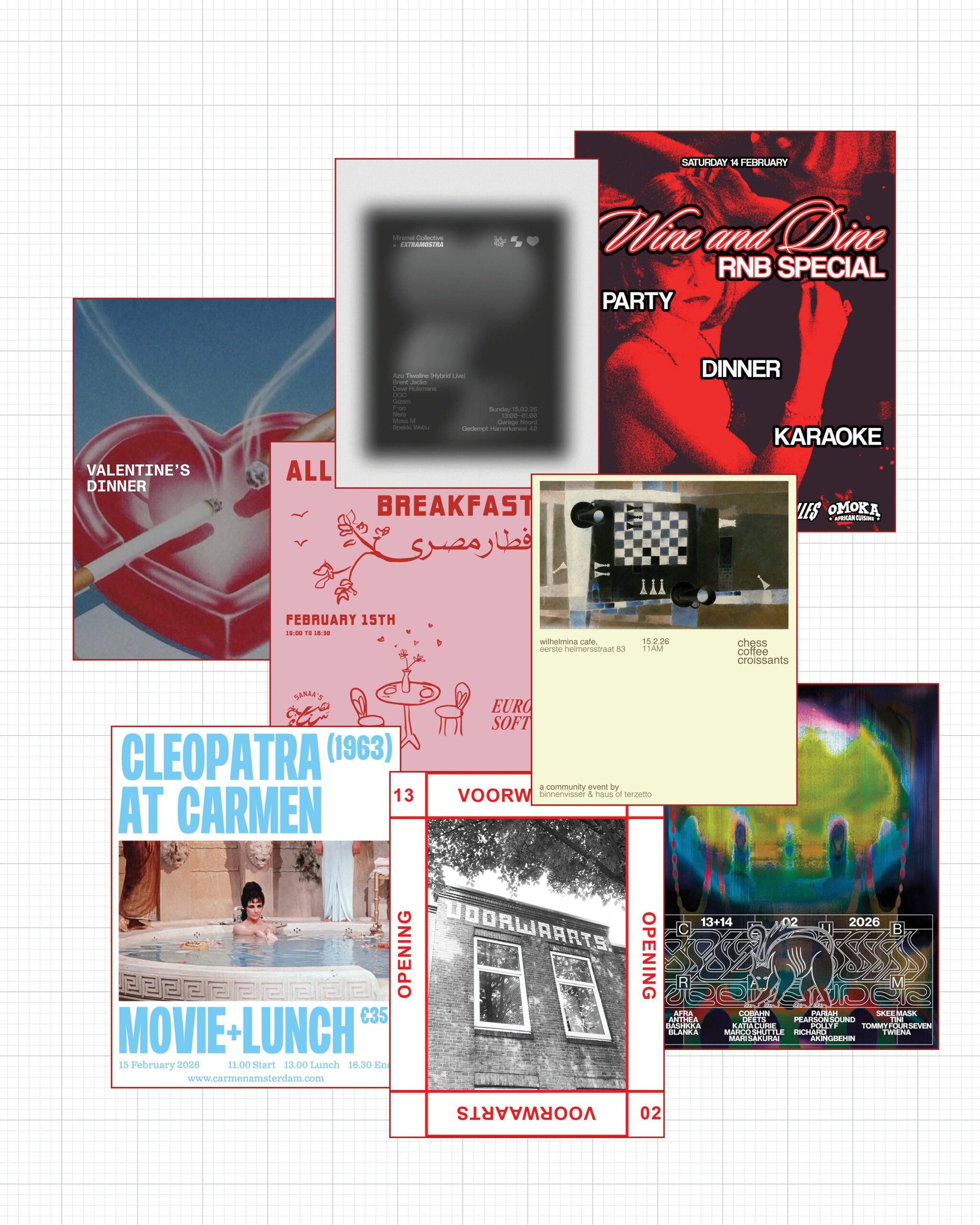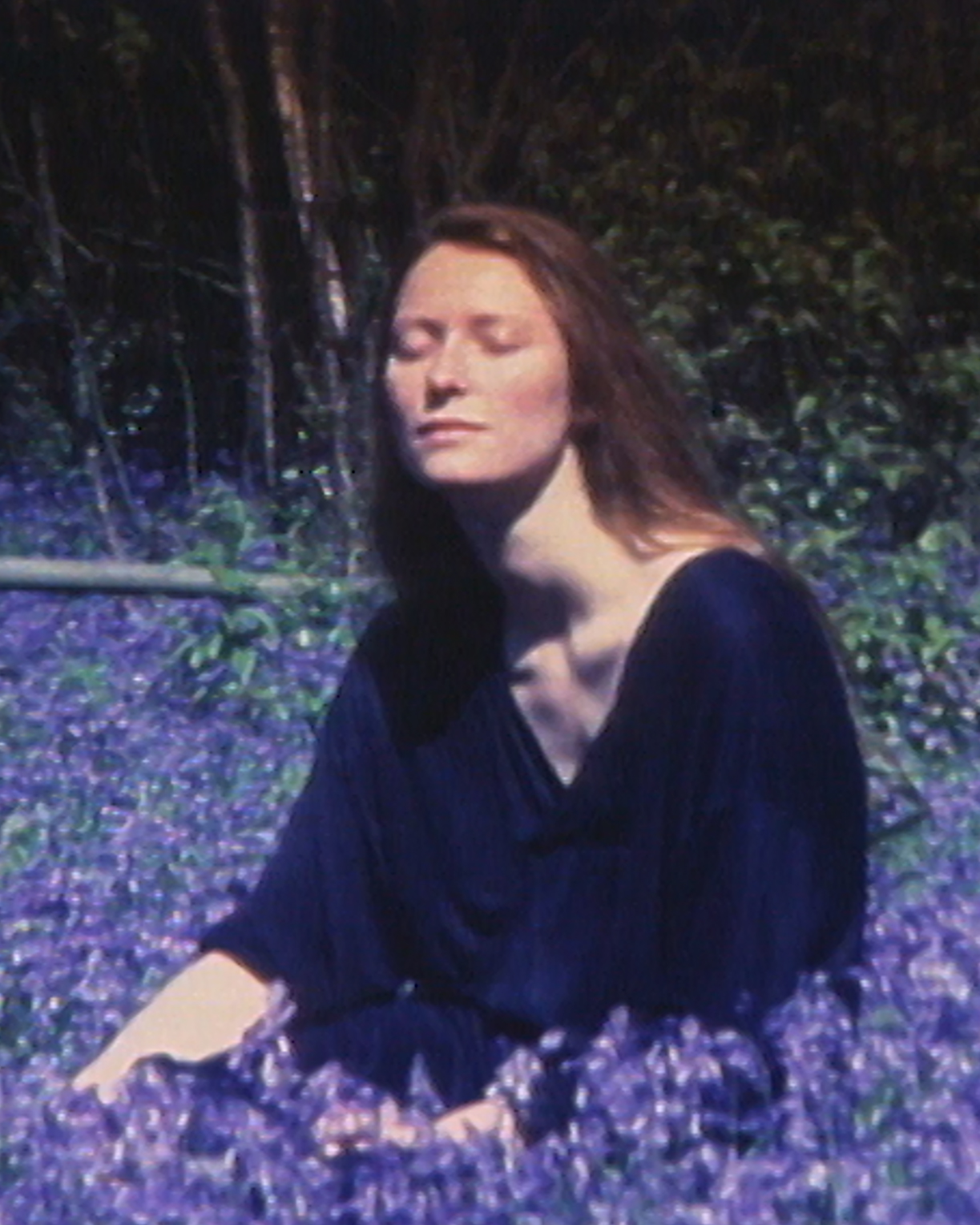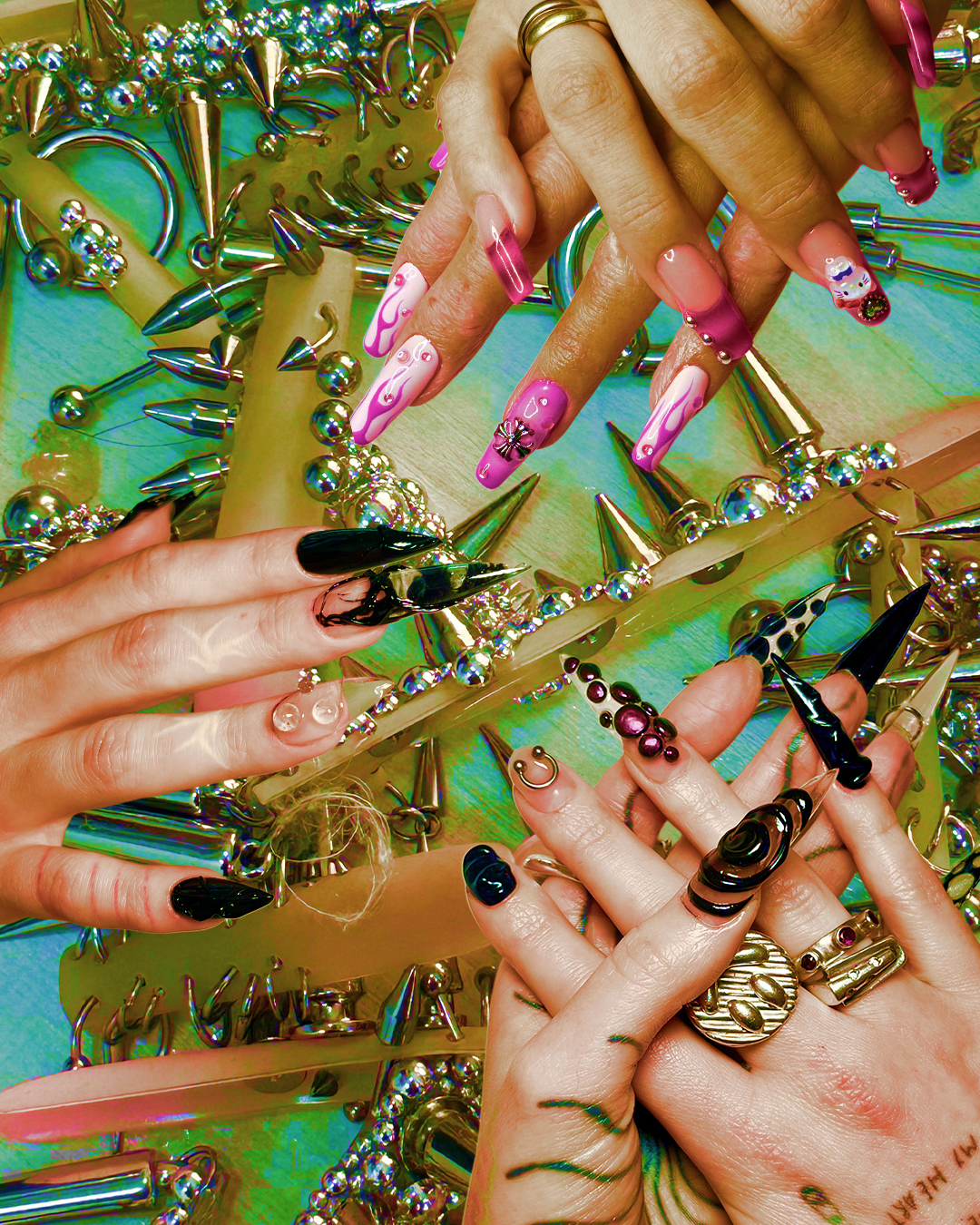Walking past a dentist office, an illustration of an animate tooth fixing another animate tooth’s inanimate teeth catches my eye and I remember my dream from last night in which I was yelled at by a tall ginger dentist regarding how if I keep smoking my teeth will fall out, and as if that wasn’t enough of a bummer, she proceeded to inform me that I have been denied my visa. I unfreeze and continue walking. My trusty bike has been broken for a little over a week, and I have been enjoying commuting on foot and peeking into ground-floor windows. The exhibitionism of the Dutch rich has always been very entertaining to me. Curtains wide open, dangling chandeliers lit up, reflecting off an oiled-up leather sofa with a freshly groomed cocker spaniel on it. Not one person in sight.
April’s unrest has settled down a little. And with that, more space to ruminate came available. I noticed that when feeling low, habits that felt like comforting routines can start looking more like daunting loops. What used to bring me stability starts to make me feel like a hamster in a wheel.
Walks have been helpful, as they often are.
And in May, most of my commute was scored by Erika de Casier’s new record, Lifetime, which she released out of the blue without any singles or teasers, aside from some cassettes she sent out to fans in Denmark some days before the album’s drop. I’ve been a fan of her music for some years now and almost equally enjoyed the three projects leading up to this one. Lifetime leaps up and away from her usual tone into a slower, darker, more meditative trip-hop / ambient / R&B, and it’s just so smooth. It still has those cheeky and charming tonalities that all of her previous work is laced with (i. e. Delusional, You Got It!, The Garden), but a lot of the tracks have this dusky mellowness to them — both thematically and sonically. Everything on the record feels correct, honest, thoughtful, but not overcomplicated, like an arrival point for her artistically.
It’s worth noting that Lifetime is her first entirely self-written and self-produced record, which checks out with how it sounds. It feels like, after years of masterfully pulling references from both the pop and the underground of the 90s and 00s, this record strips off its usual influences to reveal a subdued but fully formed vision.
The other day, I came back to ’t Blauwehooft for a post-work drink and was very bummed to discover that since my last visit, the tree in front of the terrace has opened up its foliage, completely blocking the sun. In search of a new spot, I stumbled upon September, hidden away in a very residential part of Baarjes, still somewhat untouched by the sticky fingers of gentrification.
September is a restaurant and a wine bar created by three friends who started it together and run it with no additional staff. Their wines start at 5 euros (last time they had a very nice orange grüner) and you can get a selection of micro canapés for 2-3 euros a piece.
I’m yet to try the dinner menu, but I bet it’s fantastic, as it feels like everything from the menu to the interior has been done with lots and lots of care and passion. It became my new pit stop between work and home, after being let down by that treacherous tree in front of ’t Blauwehooft.
On a less savourable note, I spent two strange weeks reading Old Food by Ed Atkins. If I had to categorise it, it’s closer to poetry than prose. It is a rather incoherent list, or rather a chain of very guttural descriptions of relatively edible components, occasionally interrupted by glimmers of narration and humanity. It is grammatically baffling, repulsive, but oddly gripping at the same time. Most of the book is written from a “we” perspective in past conditional and present perfect, which gives everything a veil of dark nostalgia and sentimentality. In certain moments, it felt like listening to a toddler who had too much sugar and won’t stop rambling about something, but the matter of the rambling being a lot more gory and detailed than a child would be able to express.
The only way it was possible for me to stay on track with it was to read it aloud, or at least in my head, as the spacing and syntax of the text are severely messed up. But once in the flow, I felt like I was zooming into textures and fibres of everything, and once done reading, I noticed a strange shift in my receptiveness to my surroundings, both edible and inedible; like I was somewhat turned inside out and my attention was fixated on all the different substances that I came across. It’s a disorienting, guttural, vile, and funny read.
Both De Ateliers and Rijksakademie had their annual shows. Art Week is always an overstimulating time, and this year, rather than hopping around catching glimpses of all that is out there, I just spent two days slowly getting through those two. It always feels quite unfair to compare them, as the format and scale of the shows are drastically different, but being the two main postgraduate art institutions in Amsterdam, the comparison draws itself.
De Ateliers was open for two whole weeks, which gives one a chance to calmly browse through the building, where both the works and the viewers get plenty of space to breathe and just be. A slightly confusing in its execution but very exciting in theory, the curatorial approach to exhibiting the 10 participants was to divide the show into two, with each work having a “front” and a “back”. Each participant had their main piece, shown in their former studio, and another work elsewhere in the building, usually in a less conventional space and approach, that either echoes the main work, or is made in collaboration with another participant.
As the group of participants is vastly diverse in their mediums and areas of practice, I think it’s quite a challenge to make it feel like a total exhibition, but this dual approach to it did help bring a sense of cohesion to the viewer experience. Additionally, throughout the two weeks, a few of the artists hosted tours of the show. Levi van Gelder did it performing as Ötza, his Neolithic drag alter ego persona, and Swan Lee led the visitors through the rooms at 10 PM in total darkness, guided only by a bunch of flashlights.
I had to think about the 1938 International Surrealist Exhibition in Paris, where the audiences were similarly guided with flashlights through a maze-like grotto. I find the contemporary curatorial approaches to be dull and uninspired most of the time, and moments like this always stick with me, as I mostly find myself disregarded by exhibition texts and curatorial choices.
I have always had a harder time being at the Rijks show, mainly due to its scale and density. Though the event is called Open Studios, as far as I understand, it is up to the individual participants how much of a put-together presentation they’re willing to showcase. So it varies from being an actual studio with works and progress and material lying around to a squeaky clean art fair setup, and a lot of awkward in-betweens.
Of course, it is much harder to get 40 people to agree on something than 10, but the show is only on for four days, which means every day is wildly crowded and feels like a Friday opening, which doesn’t help the incoherency of the visitor experience. There was a staggering amount of motor-powered moving parts and Arduinos all throughout the show, which is personally not something I can ever really connect with. he swarming crowds of visitors are also definitely a factor in not being able to engage with anything. I was in a much better mood on the day I went to Ateliers, if you can’t tell.
I haven’t been able to make time for being at my studio at all. Prioritising spending time at home, solitude walks, and partying. Which at the moment feels correct. I’ve been catching up with one of my studio mates and got baffled by her managing to go to the gym, studio, do freelance and be out, all while working the same hours as myself. Feels like we exist in different time continuums.
I upped my game of cold showers to 60 seconds, which, whether by placebo or some real physiology, made my mornings a lot more lively. My algorithms have caught up with the fact that I’m looking for some sort of change in my life, and I’ve been scrolling through endless amounts of advertisements for online therapy, AI planners, and this particular Danish hair loss serum, all three of which I’m sincerely considering.
Talk soon.
